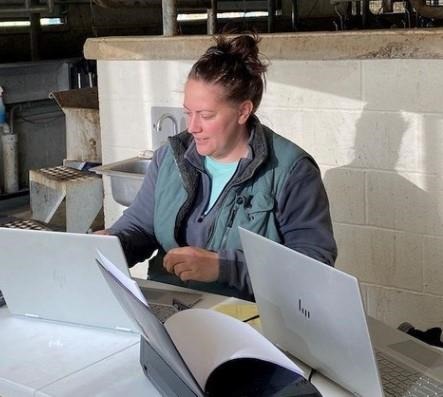Too often accountants run into clients who would prefer to pay no taxes or very minimal taxes. However, a successful business that has generated income does pay taxes. The objective is to minimize the amount of taxes over the lifetime of the business versus focusing on one year. This is important to remember when you are having this conversation with your accountant. One area that is often misused is the 179 expenses. Many times, the professionals have clients telling them they want to write off all of that new tractor. However, they put that tractor on credit. This means if you 179 expense that tractor completely and not just depreciate it, you will not have anything to offset that payment you'll be making. In addition, should you want to apply for a loan, a lender will ask to see your past 3 year's tax returns before deciding to lend you money. Multiple years of loss on tax returns paints a very negative picture of your farm operation.
Section 179 depreciation allows you to expense qualified property during the year it is placed in service instead of depreciating property over a series of years as capitalized assets. Qualifying property for Section 179 includes: purchased breeding livestock, machinery, single-purpose agricultural structures (e.g. chicken houses or hog houses). For calendar year 2021, the maximum Section 179 deduction is $1,050,000. The investment limit for qualifying property is $2,620,000. It's important to note that you can take a Section 179 deduction on the qualifying property regardless of whether the asset is new or used; however, you cannot buy the asset from a related party (lineal descendant).

Business planning can be accomplished in any setting.
Bonus depreciation (also known as additional first year or special depreciation) is the second method of accelerated depreciation.
- The bonus depreciation allowance is 100% for qualified property acquired and placed in service after September 27, 2017, and before January 1, 2023.
- With bonus depreciation, the assets may be new or used.
- Purchases of qualified used property meet the criteria for the deduction unless purchased from a related party.
In closing, it is important to understand your business's financial management, especially with regard to long-term tax implications for decisions. While you'll most likely want to be in the fields or caring for your cows, it's important to have those conversations with the professionals that you are paying to complete your taxes. If you don't understand, ask. These professionals are there to assist you and guide you in those important financial decisions. The Penn State Dairy Business Management team can assist you too in some of those critical business management needs. It's crucial to stay organized and have a team of professionals in your corner to help your business succeed.
Source : psu.edu